It seems rather aggressive to tell you I think you should be reading poetry in April, but I think you should be reading poetry in April. It is, after all, the month of poetry, nationally speaking.
What’s that? You say you don’t like poetry? That’s because you’ve not read Jill Reid. Or, Stephanie DiMaria. Or Sarah Wells.
Megan Willome has a new book out called The Joy of Poetry that would be perfect for this month. My copy came in the mail last week and I’ve been doing my best not to crease it as I peek into its pages (I ordered it for a friend). She collects poetry all year and over Thanksgiving weekend, because that is her year’s end, she brews a pot of tea, and sits down to read through it. I think that’s a lovely tradition: the year’s end at Thanksgiving and reading through what it is you’ve collected those 365 days.
Recently I’ve been thinking that instead of my free writes, I ought to try to write a poem. At least, I should read a poem before I attempt to lay my stories down on paper. Poetry makes me see the world differently than fiction or non-fiction. I think it’s because I toil over those words a bit more. Seems like every word counts so I better pay attention to why it was chosen.
About a month ago, when I was preparing to teach the end of Romeo and Juliet, I paused at the first line of the Prince’s last speech: “A glooming peace this morning with it brings.” I stopped because I was sad I hadn’t noticed that phrase, “glooming peace” last year, and I stopped because I was happy to have picked it up this second time around. I’m not telling anything new when I write that Shakespeare was a master with words, but I’ve been particularly impacted by his ability to make me feel antonyms, like gloomy peace. What a perfect way to describe the end to this story, and also, this time of year; when the excruciating reality of what love can do leaves us in its wake. We read the last scene during Holy Week and I think a peace that is full of lament and sorrow is the sort of peace that passes understanding and because of it, is hard to sit with. The peace we have been given comes with gloom.
I’m no poetry expert, but I do think what helps is to come at poems playfully. One thing I do in my classes is have my students find a line or two to illustrate. Of course we can’t understand all of Shakespeare, I tell them. That will take a lifetime (at least, for me). But how about one or two lines? They gave it a shot after we read the scene in Romeo and Juliet the morning after their wedding night, and here is what some of them came up with. I played along, too. Mine is the first one. Don’t be jealous of my artistic ability.
I’m not sure if it makes a difference in their understanding of iambic pentameter and William Shakespeare. When I come up with these ideas, I get excited to try them and hope that something magical will happen while they’re looking at a set of 10-20 words. While the idea is being played out in the classroom though, I wonder if I executed it correctly. Too much fooling around, too many, “I don’t get its,” and I think perhaps I should’ve just given them the answer; told them what it means. Then again, maybe this is what it feels like to live in an antonym – to fumble and grasp at something we only sort of understand and attempt to share it with others. “Do you get it?” I’ll ask, kneeling next to a student who twiddles her foot and pencil while I try to explain. “Yeah, sort of,” she’ll say. “OK,” I’ll say and stand up to walk away. “I don’t understand all of it, either.” She’ll laugh at me, and I’ll feel bad, but ignore it and walk away. She’ll draw something to show a slice of understanding and I’ll be so proud of her for trying.
It’ll feel like gloomy peace; like April.
Happy Poetry Month.
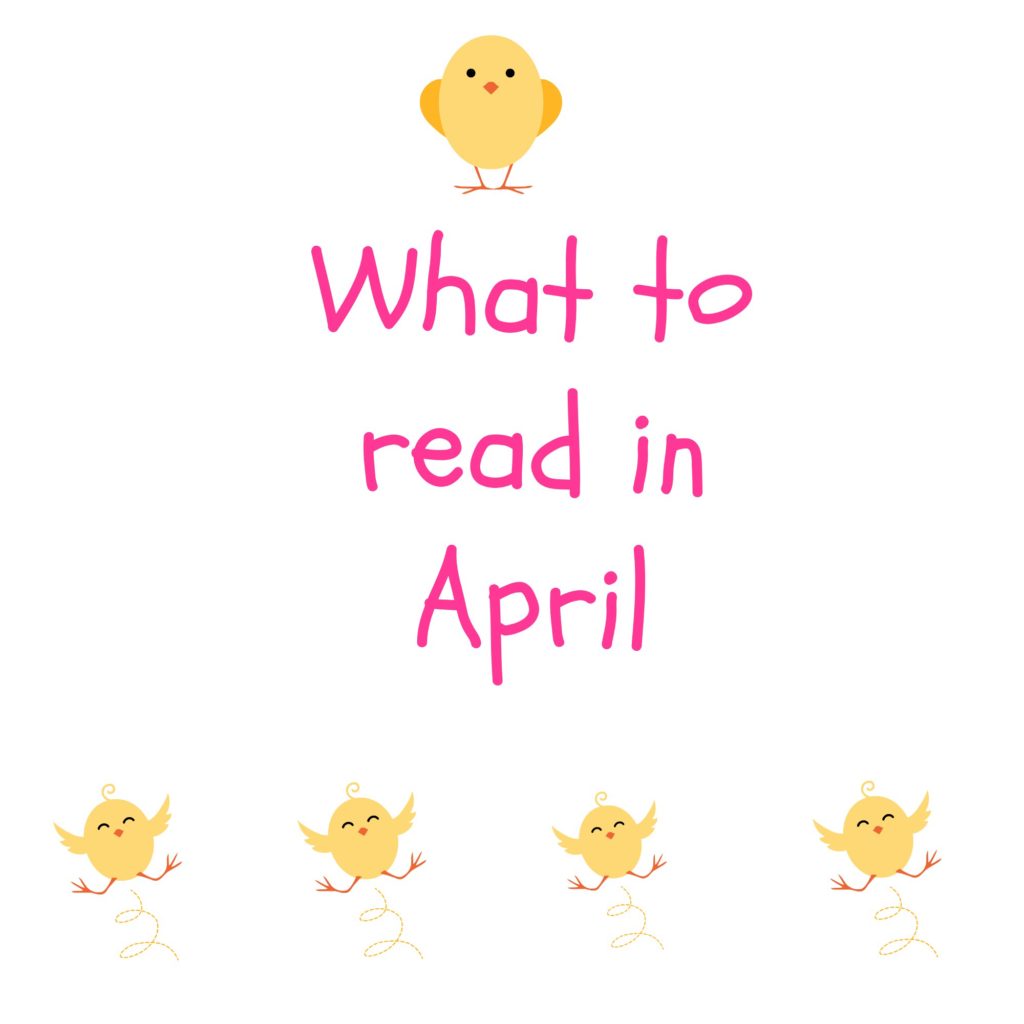
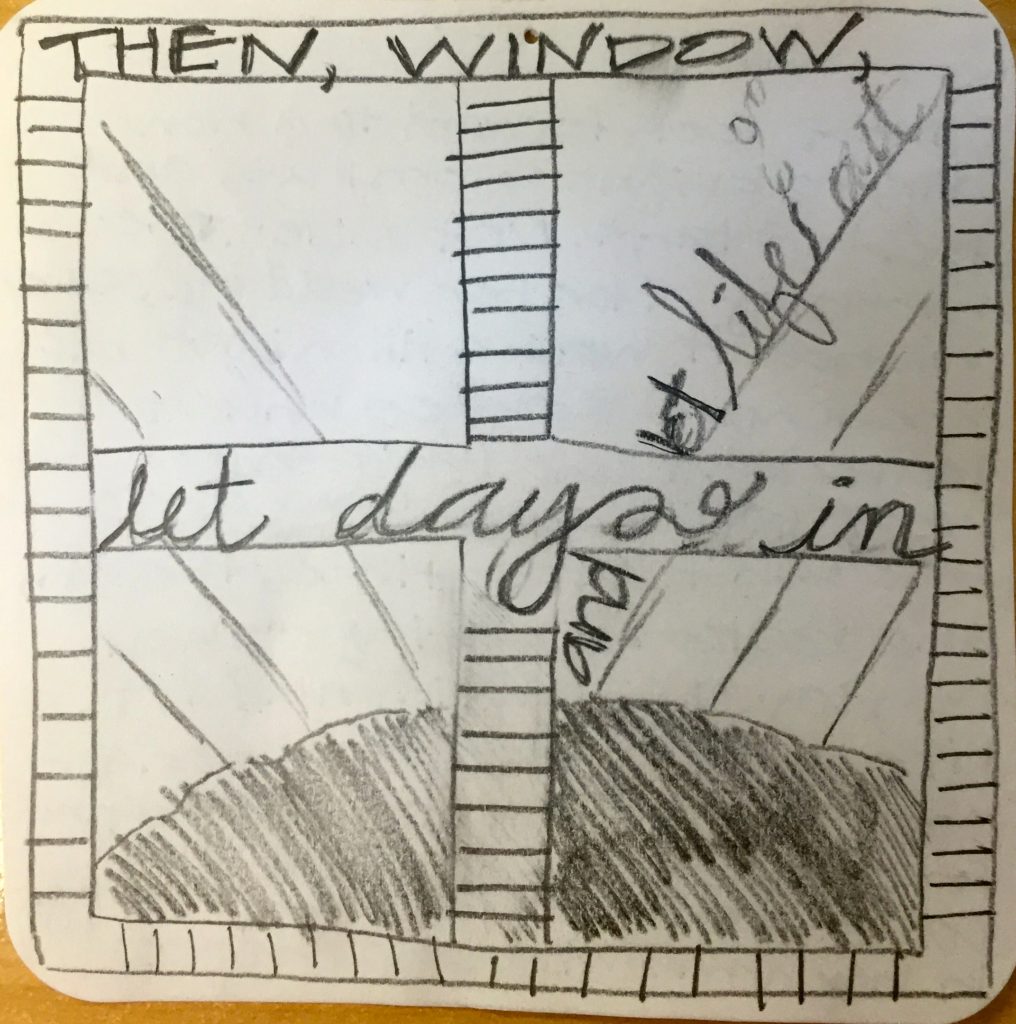
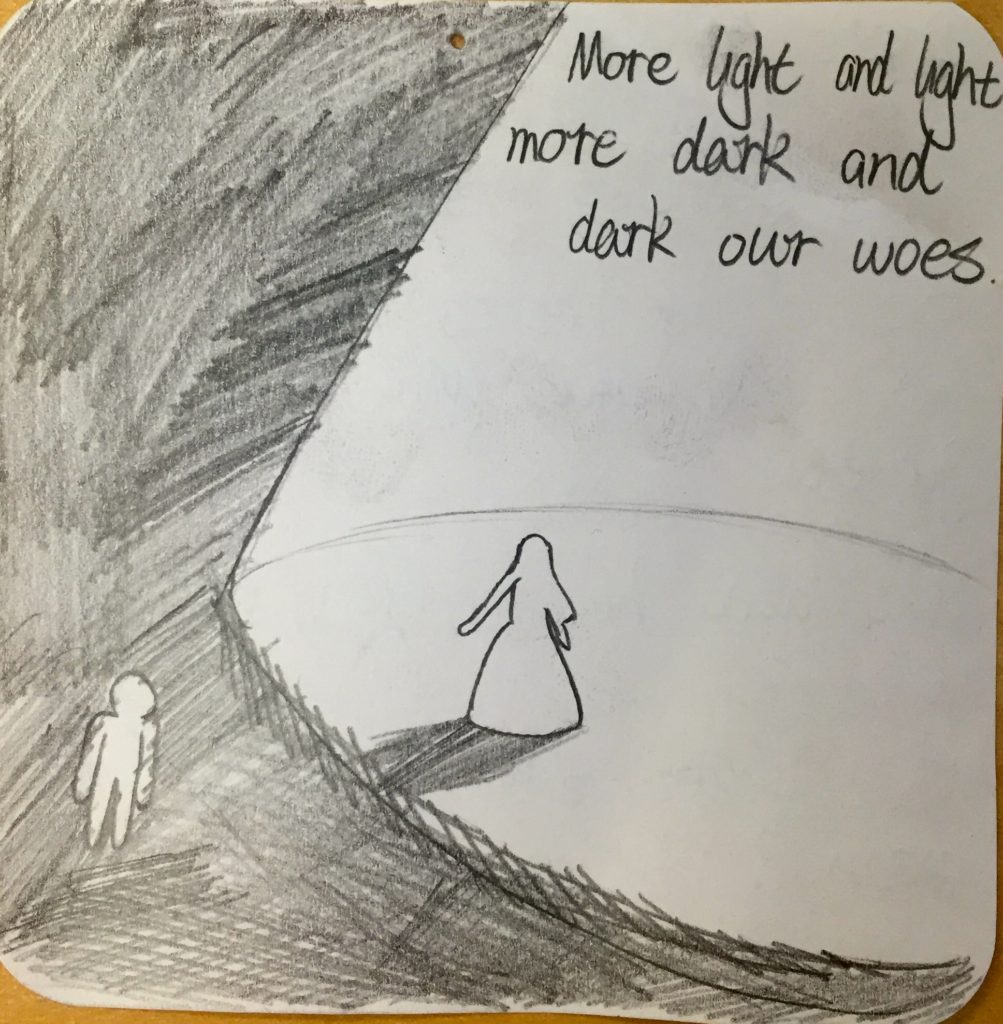
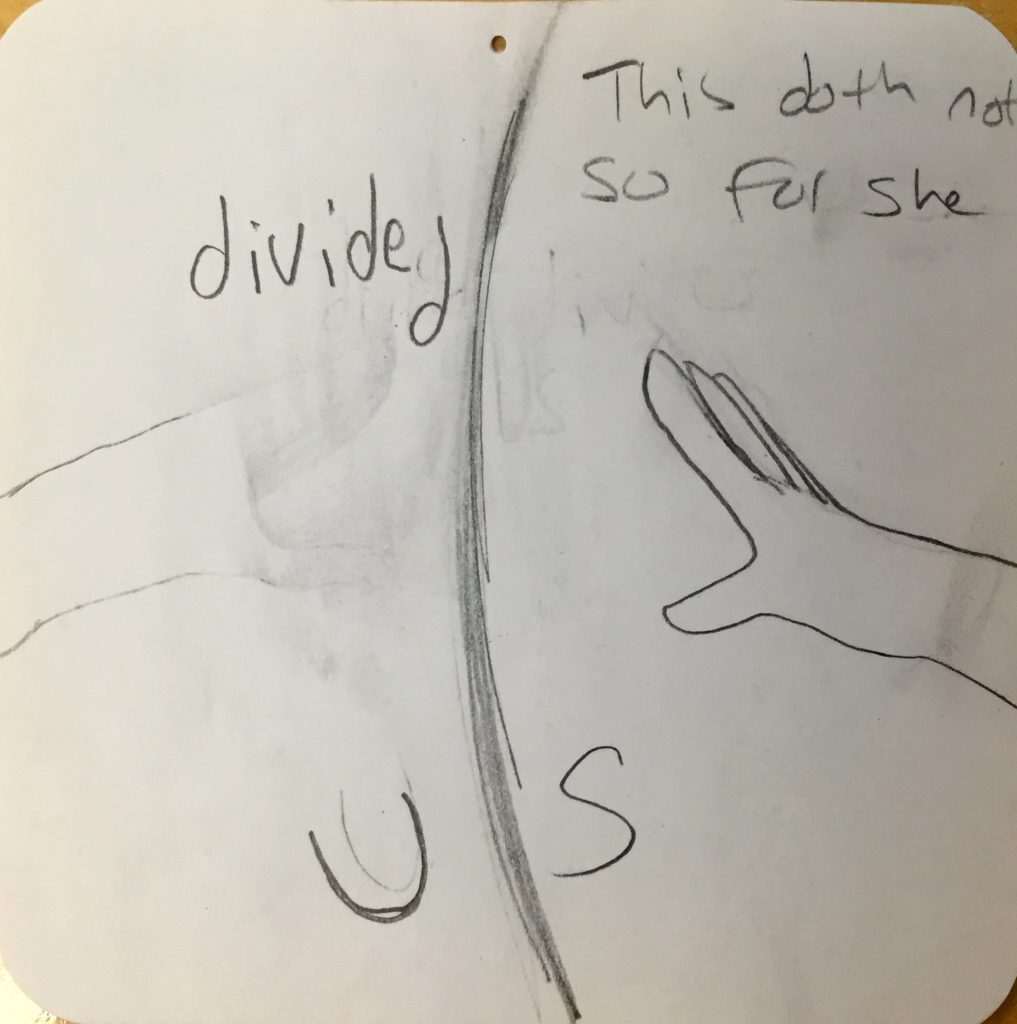
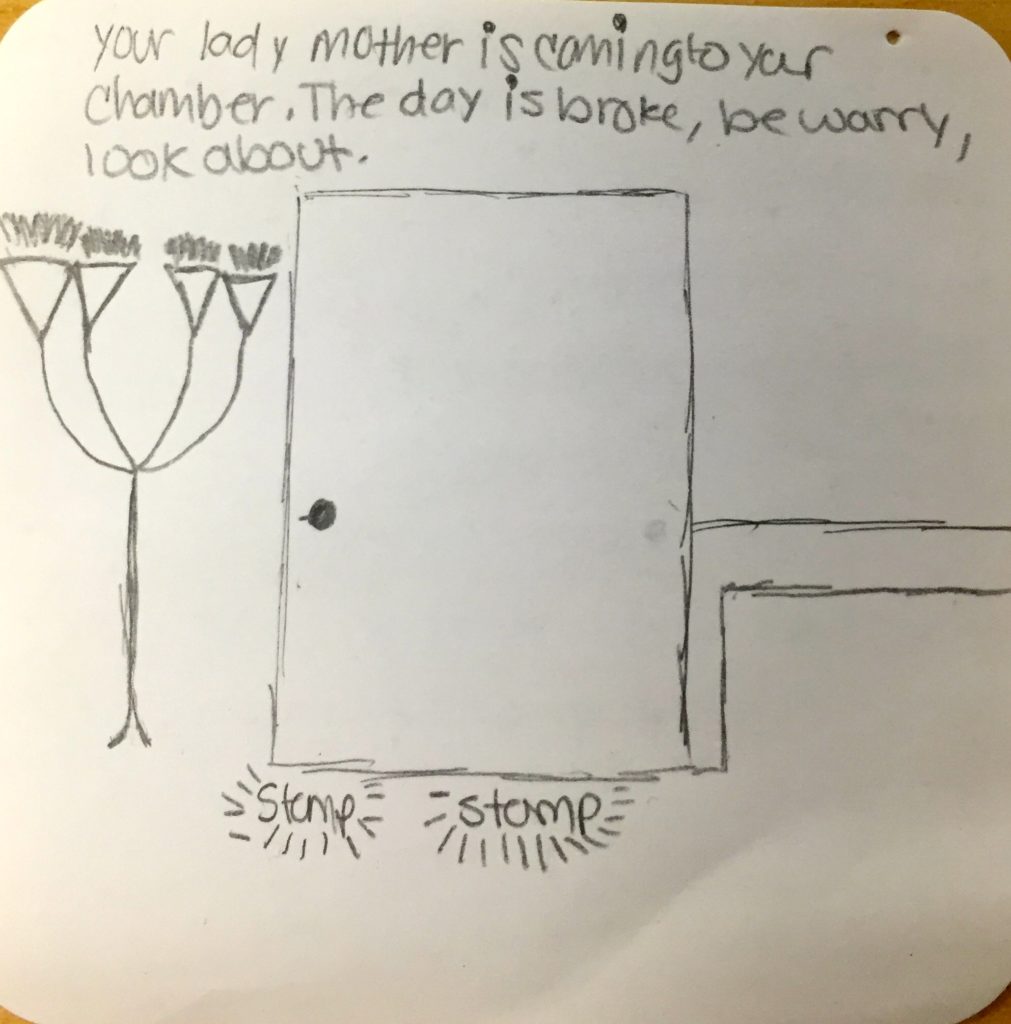

The “stomp stomp” made me laugh out loud.
You always make me miss the classroom. So many ways of being with what’s not understood. And, there is a lot of meaning in the pictures. Loved your words and their ideas.